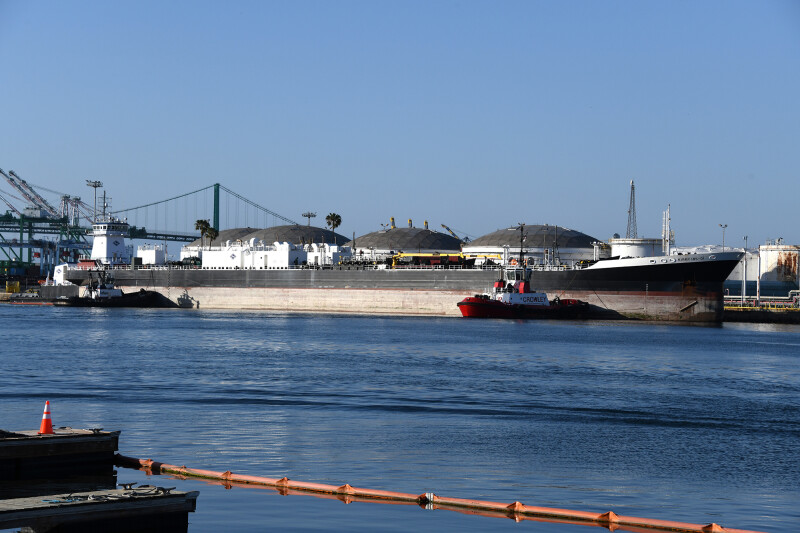The last time Americans paid attention to the maritime industry was during the pandemic, when shipping’s crucial role in delivering goods from China became clear. Images of dozens of ships anchored off West Coast ports waiting to unload filled the news. But once the pandemic ended, so did public interest in shipping.
Ships are back in the news as China struggles with tariffs imposed by the Trump administration. The California ports of Los Angeles and Long Beach account for a significant portion of containerized imports from China and have seen ship traffic decline nearly 50% from last year. Long Beach has experienced more ship cancellations in April and May than in 2024. Containerships are returning to China empty.
Every four containers translates into a port job. Fewer containers mean fewer workers. The reduced container volume will impact freight forwarders, warehouse workers, and truck drivers. Retailers usually maintain sufficient domestic inventory to support sales for seven to eight weeks; after that, assuming nothing changes, shelves will empty and prices will rise, according to managers and economists.
Investors are told to watch the Dow Jones Transportation Index to follow the tariffs’ economic impact. That index measures all aspects of transportation – airlines, railroads, logistics, trucks, rental cars, and ships; therefore, it is sensitive to the earnings impact of a slowdown in global trade. The maritime industry makes up just 1.6% of the index’s total capitalization, with only two of the 20 companies — Kirby Corp. and Matson, Inc. — representing the U.S. maritime sector. Kirby is the leading domestic petroleum shipper on the Mississippi River, along all three U.S. coasts, and in Alaska and Hawaii, and Matson is a Pacific Ocean container carrier and North American logistics company.
The ongoing tariff battle is expected to secure better trade terms for the U.S., leading to changes in trade routes and volumes. These shifts align with the administration’s broader goal of revitalizing domestic shipping and shipbuilding. This initiative stems from a growing awareness of the nation’s dependence on foreign maritime capabilities.
To support this effort, the government is offering increased financial support and incentives. Rebuilding America’s maritime industry promises to create thousands of well-paying jobs and long-term career opportunities. As a result, expect the maritime sector to gain greater visibility in the media and in the minds of the American public.




